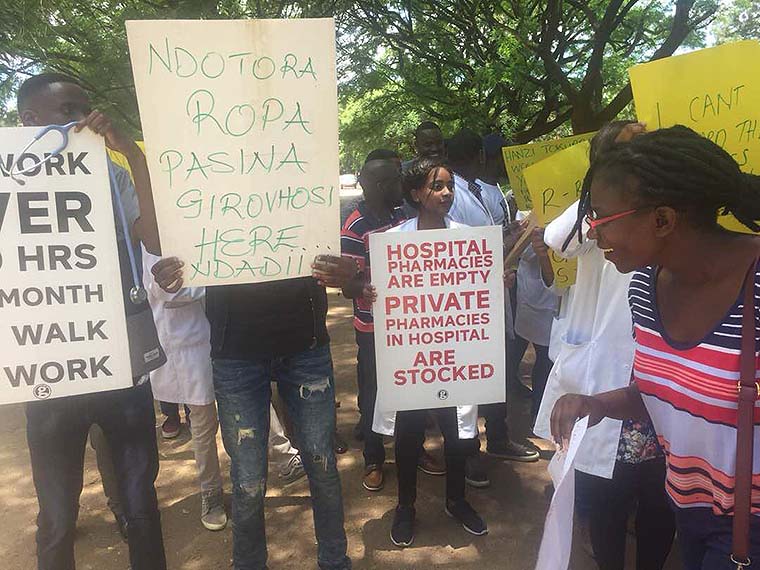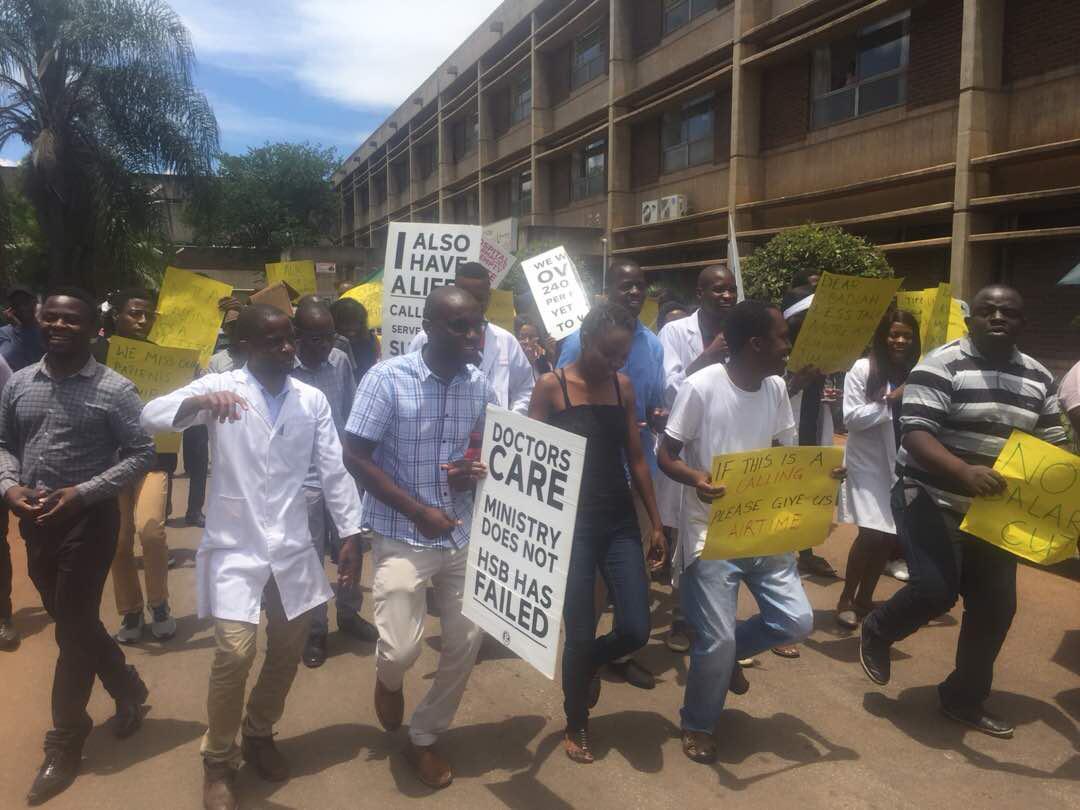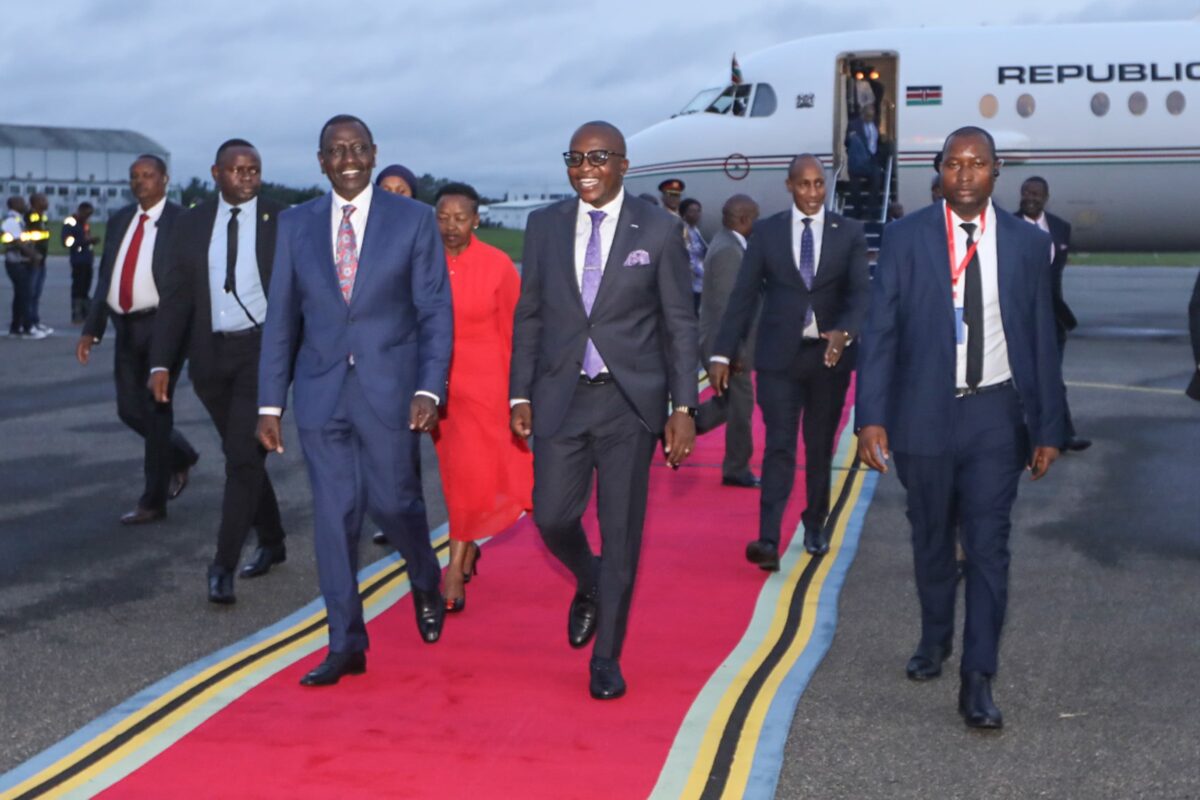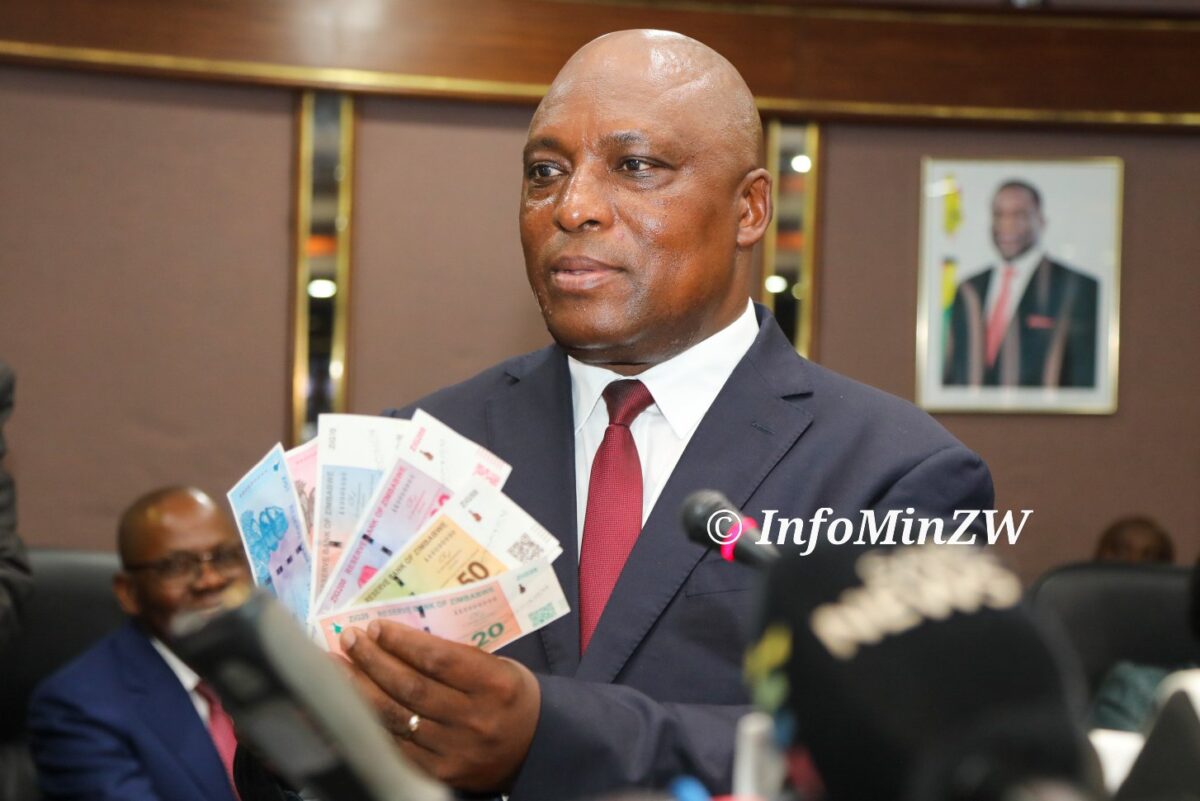HARARE – Zimbabwean doctors at public health institutions have been forced to use condoms in place of disposable medical gloves as the government struggles to maintain critical supplies to the facilities.
Junior doctors took to the streets in Bulawayo on Thursday and Harare on Friday in protest over the government’s failure to improve their conditions of service, including availing critical medicines, sundries and a review of their salaries.
The doctors, who have been on strike since December 1, accuse the government of lacking urgency in addressing their demands as well as using state media to spread “propaganda” about the state of negotiations.
On Friday, doctors marched from their residences to their employer, the Health Service Board’s offices, which are both situated at the Parirenyatwa Group of Hospitals.
Prince Butau, the treasurer of the Zimbabwe Hospital Doctors Association (ZHDA), said the situation in hospitals was unpleasant as doctors were now constantly required to improvise, placing the health of patients at risk.
“People are dying under our watch. As doctors, we’re also not psychologically in a good place because of the effects of the economy including price hikes and fuel shortages,” said Butau told ZimLive during the protest.
“There’s no personal protective equipment. Sometimes we’re forced to wear condoms when checking patients. Doctors are asking, until when practising bush medicine?”
Chest drain, gloves, basic pain drugs such as paracetamol and syringes are among the scarce basic supplies.
“In some instances, we’re using the tubes we have and improvising with empty water bottles to make urinary bags,” said another female doctor.

The strike entered day 14 this Friday despite Health Ministry’s plea for the doctors to return to work while their grievances are being attended to.
The government claims to have bought medicines worth $25 million from India, while drugs worth a few millions have been delivered to NatPharm, the state-owned drugs company.
A junior doctor, who asked not to be named, said: “The government just said there are medicines at NatPharm. We haven’t seen which ones and how long they will last. They said some are in transit from India, they’re not here yet.”
The doctors, who have dropped demands to be paid in United States dollars, now want their salaries to be commensurate with the cost of living following the erosion of value of RTGS balances – which the government uses for its wage bill – by over 300 percent against the USD.
Dr Rejoice Kututwa said: “I’m currently not able to use my knowledge to help my patients because there’re no medicines and sundries. It’s like being told to go and work the fields without a hoe.”
With NatPharm largely unable to provide drugs, many pharmacies are charging for the imported medicines in USD.
The government is bracing for further worker discontent with teachers threatening to go on strike before schools open in early January.















